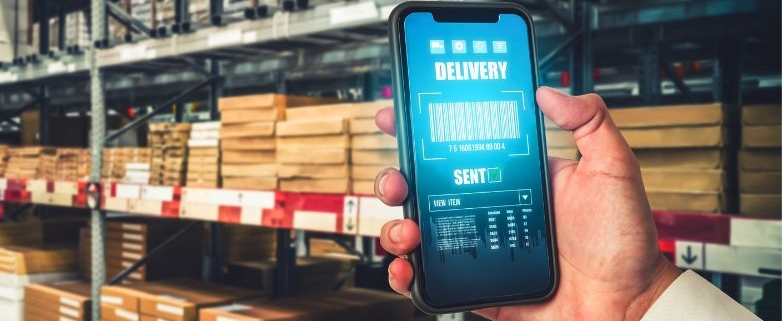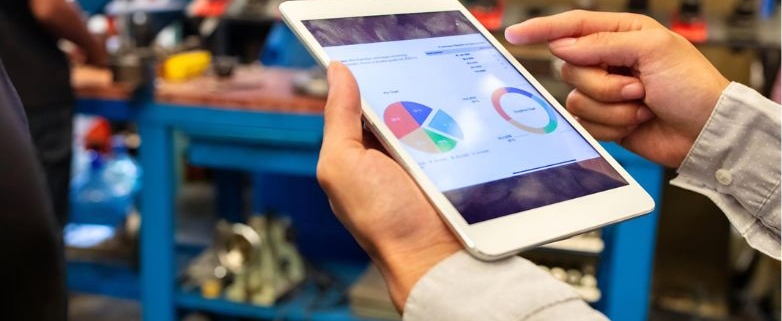How to Integrate WMS Mobile with NetSuite ERP Seamlessly
Why native NetSuite integration matters
Connecting your warehouse floor directly to NetSuite ERP eliminates errors and delays. This avoids file uploads, batch syncs, and manual data entry, which is where most errors occur. NetScore WMS Mobile, being a native system, sits inside your NetSuite ecosystem. It uses the same items, bins, orders, and transactions. No separate integration layer is needed for pushing the data.
NetScore WMS Mobile leverages NetSuite records in real time. Including every scan for receiving, picking, packing, shipping, counting updates inventory and fulfillment. This results in the following-
- Reduced stock discrepancies
- Improved order accuracy
- Visibility to warehouse managers from NetSuite dashboards
Key native capabilities of NetScore WMS Mobile
NetScore WMS Mobile is designed as a NetSuite-first warehouse solution. It is not a generic external WMS that you add later. It connects mobile and wireless devices to NetSuite. As a result, the barcode or QR scans flow straight into NetSuite transactions.
Core native capabilities include:
- Real-time barcode scanning that posts to NetSuite item receipts, picks, transfers, and adjustments.
- Receiving, picking, packing, shipping, and inventory adjustments using NetSuite’s data model.
- Smart label printing for items, bins, packing slips, and shipping labels.
- Role-based access and permissions aligned with NetSuite user roles and warehouse responsibilities.
- Cross-device support (Android, iOS, rugged handhelds, wireless scanners) without changing your NetSuite backend.
Step-by-step integration approach
Integration doesn’t involve building new connectors here. It is rather the activating and configuring of a native SuiteApp.
1. Prepare NetSuite data and configuration
- Clean up items, units of measure, locations, and bin structures in NetSuite. This will ensure that the mobile processes have accurate masters.
- Define which locations will use WMS Mobile first. For example, the main distribution center vs a small satellite warehouse. This will keep the initial rollout focused.
2. Install and enable NetScore WMS Mobile
- Log in as an administrator or a role with sufficient privileges. Deploy the NetScore WMS Mobile SuiteApp and follow the steps in Installation Guide.
- Configure WMS Mobile setup pages in NetSuite. Configuration includes license keys, menu options, device settings, and print configurations.
3. Configure roles, permissions, and workflows
- Map warehouse job functions (receiving, picker, packer, supervisor) to NetSuite roles and WMS Mobile menus. This way each user only sees tasks relevant to them.
- Configure scanning workflows (for example, single-order pick, wave/batch pick, transfer, cycle count). These should match how your warehouse operates today while leveraging WMS best practices.
4. Connect and validate devices
- Register mobile devices and scanners (Android/iOS or rugged handhelds) to point at your NetSuite environment. Use secure credentials.
- Test common flows like receiving, put away, picking, packing, shipping, from device to NetSuite. This ensures transactions post correctly and in real time.
Best practices for a seamless rollout
More than technology limitations, integration is about process design, training, and incremental adoption. Putting a structure around these areas helps you capture the full value of NetScore WMS Mobile’s native integration.
Recommended best practices include:
- Standardize barcodes and labeling: Ensure all items, bins, and pallets have scannable codes. The codes map directly to NetSuite records. This avoids manual lookups.
- Align transactions with NetSuite: Mirror purchase order, work order, and sales order flows. This way mobile actions always result in the correct NetSuite transactions.
- Design clear exception paths: Define handling of short shipments, damaged goods, substitutions. So, exceptions are handled on the mobile app and never fall back to spreadsheets.
- Train users on devices: Train them in scanning, error messages, and device usage. And not just on NetSuite screens. This increases adoption and reduces resistance.
- Monitor KPIs in NetSuite: Track inventory accuracy, pick rate, cycle count compliance, and order turnaround time. using NetSuite saved searches and dashboards to prove ROI.
How NetScore’s native model reduces integration risk
Traditional WMS integrations often require complex mapping. Mapping between two databases, custom middleware, and sync schedules. Such mapping can fail or drift over time. With NetScore WMS Mobile, all warehouse execution runs on NetSuite’s live inventory and order data. As a result, there are no duplicate items or separate inventory tables to reconcile.
This native architecture simplifies upgrades and extensions. New NetSuite fields, locations, or processes can be exposed to mobile users. There is no need to re-engineer a separate integration layer. It also shortens implementation timelines. Many customers go live in days or weeks instead of months. This is possible as the app is installed from SuiteApp, configured in NetSuite, and deployed to devices via standard app stores.
For more information book a demo here.













